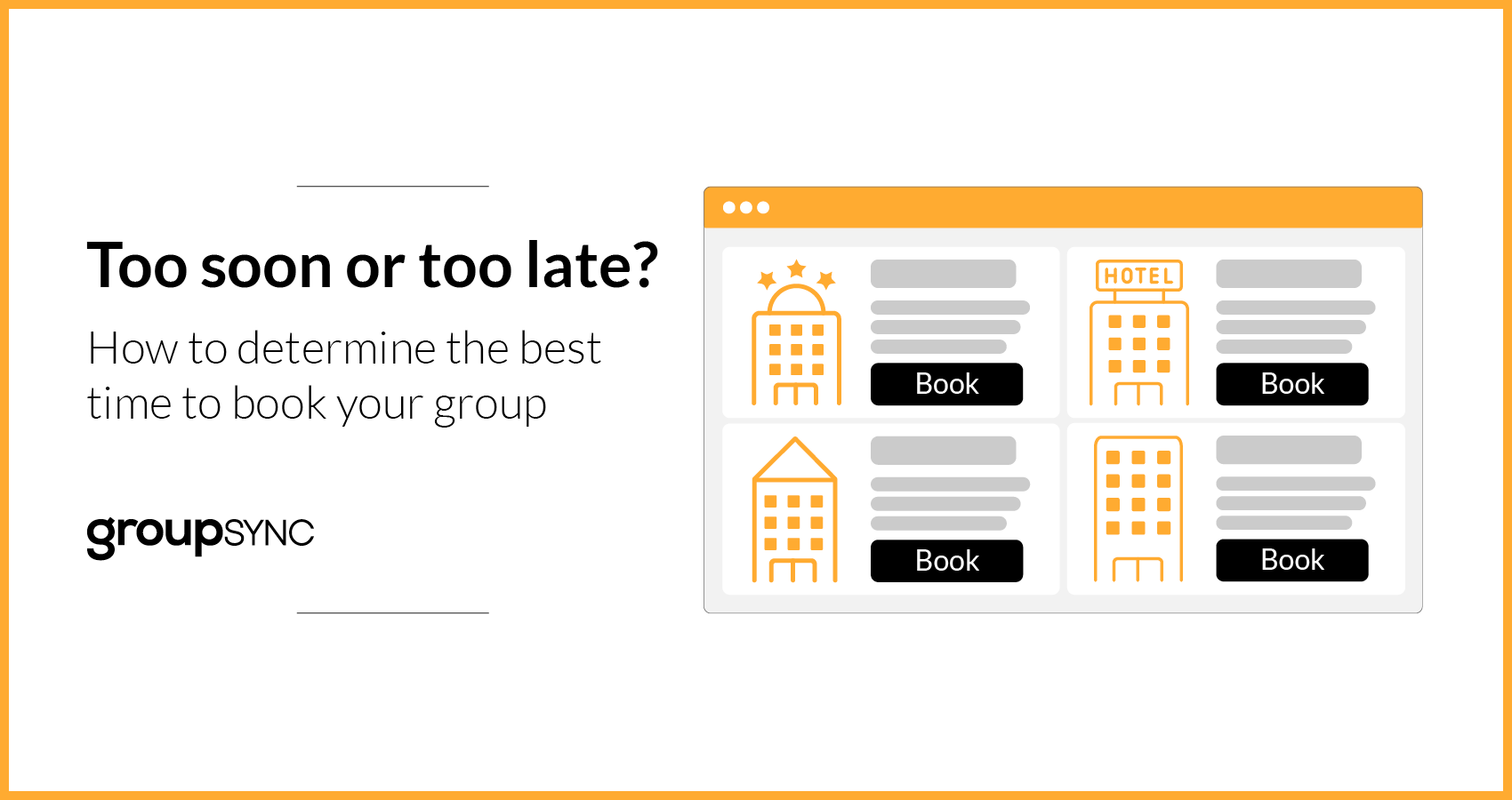When it comes to getting the best meeting package, timing really is everything. And due to the pandemic and its consequent economic fallout, hoteliers and event planners have been forced to reorganize and find new ways to streamline their business. Finding the right time to source in an industry that’s been flipped on its head is a brand-new challenge. It’s not uncommon for corporate event planners to fit in hotel and venue sourcing when they have the time — or to source at a specific time simply out of habit.
However, the timing of your venue search has a massive impact on your event and budget. Industry experts agree that sourcing at the wrong time can be extremely costly. Booking a program too late could affect your incentives, rate offers and attrition/cancellation allowance while limiting your options and undermining your negotiating power.
On the other hand, sourcing too soon could mean receiving less than ideal offers from hotels. For dates far into the future, a hotel’s primary focus is booking base business with full-house groups or programs requiring a minimum of 80% of the property’s guest rooms and meeting space.
Unfortunately, there is no one-size-fits-all answer to the ideal booking window. It’s a delicate balance that requires a balance of knowing what your event’s value brings, and leveraging available data to help make faster, better decisions.
Ryan Morris, vice president of sales, Americas for Groups360 and former associate director of sales at the Gaylord Texan Resort and Conference Center, shares what every event planner — from newbies to veterans — can do to determine their program’s ideal booking window.
Understand the value of your meeting
A rule of thumb: The best time to source is when hotels want to sell. According to Morris, understanding the value of your meeting to a city and its hotels is crucial to lock in the best deal. One fundamental element many corporate event planners tend to overlook is a city’s supply and demand. After all, a city at 60% occupancy over your event dates will offer a drastically better package than a city already at 90% occupancy. Other vital factors that impact your booking window and your meeting’s value include the number of guest rooms and meeting space required.
Having a grasp of their program’s value was a game-changer for the National Swimming Pool Foundation, resulting in a savings of $21,000. Corporate event planner Michelle Kavanaugh wanted a unique destination with room rates under $170 for the four-day program (260 rooms on-peak). Within minutes, GroupSync found their preferred markets of Baltimore, Cincinnati and Detroit were more than 83-87% full over the event dates, with rates right at $170 and up. Meanwhile, Williamsburg, Virginia, came up with rates starting at $130-160, with lenient attrition and favorable concession packages and cancellation agreements.
Relevant destination and market data – before you send an RFP
Don’t lean on assumptions or even your previous experience in a city. Markets change all the time. What you may have experienced when booking a spring event in Denver last year will unlikely be true today. Instead, become familiar with the market occupancy and a city’s expected rates before sourcing.
Imagine how much stealthier you can work armed with this type of data for all major destination cities, including New York City, Chicago, Las Vegas, Orlando, San Diego and San Francisco. The ability to enhance the amount of data available to planners is why we’ve included projected room rates and availability — powered by STR, a leader in data intelligence for the hospitality industry — into our hotel group booking solution, GroupSync. Knowledge is power and gives you a favorable position when negotiating. Having this information ahead of time is vital to narrowing down destination and hotel choices and driving educated decisions. Plus, this info will tell you if a hotel’s offer is aligned with market expectations and mitigates the need to send RFPs just for ideas on rates and availability.
Hotel sales and revenue managers rely on data throughout the sales journey. With today’s technology and solutions evolving group travel and event planning, you can too.
Offer to sign within a tight timeline
Hotel sales managers are motivated by quarterly closings and sales goals. Because of this, they’ll be more driven to close proposals with meeting planners serious about sourcing, site inspecting and signing in a timely manner. In addition to your decision timeline, they will want to know if you’ve cast your sourcing net far and wide. How many other destinations or properties are you considering? Are they one out of 30 hotels or 10? If they have a higher chance of winning your business, they will be more motivated to offer the best package possible.
Achieving the ideal booking window doesn’t simply mean glancing at the calendar and working in reverse by several months or fitting it in when you have a chance. Understanding the value of your event and leveraging market data is the secret sauce to smarter sourcing.


